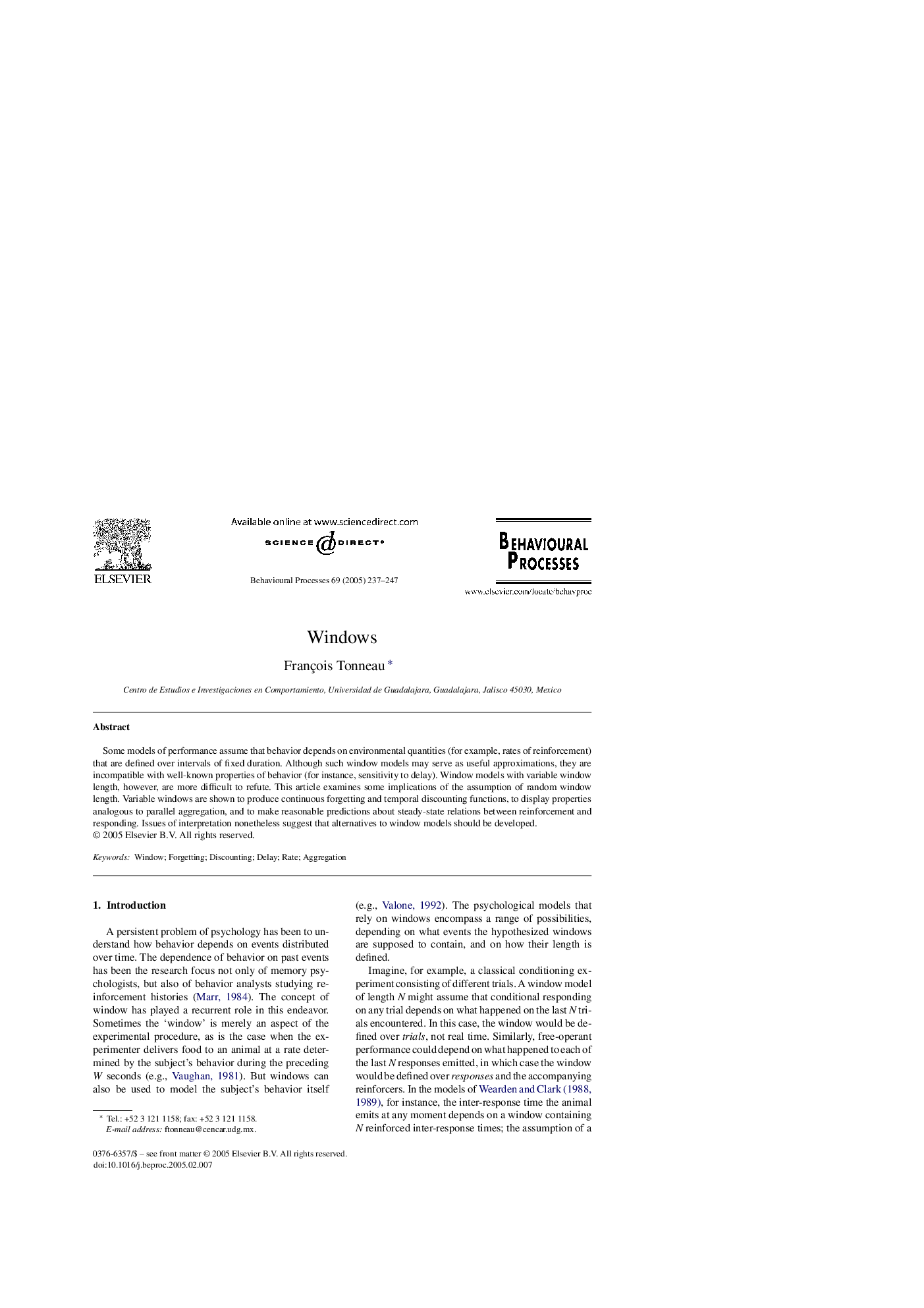| Article ID | Journal | Published Year | Pages | File Type |
|---|---|---|---|---|
| 8977409 | Behavioural Processes | 2005 | 11 Pages |
Abstract
Some models of performance assume that behavior depends on environmental quantities (for example, rates of reinforcement) that are defined over intervals of fixed duration. Although such window models may serve as useful approximations, they are incompatible with well-known properties of behavior (for instance, sensitivity to delay). Window models with variable window length, however, are more difficult to refute. This article examines some implications of the assumption of random window length. Variable windows are shown to produce continuous forgetting and temporal discounting functions, to display properties analogous to parallel aggregation, and to make reasonable predictions about steady-state relations between reinforcement and responding. Issues of interpretation nonetheless suggest that alternatives to window models should be developed.
Related Topics
Life Sciences
Agricultural and Biological Sciences
Animal Science and Zoology
Authors
François Tonneau,
